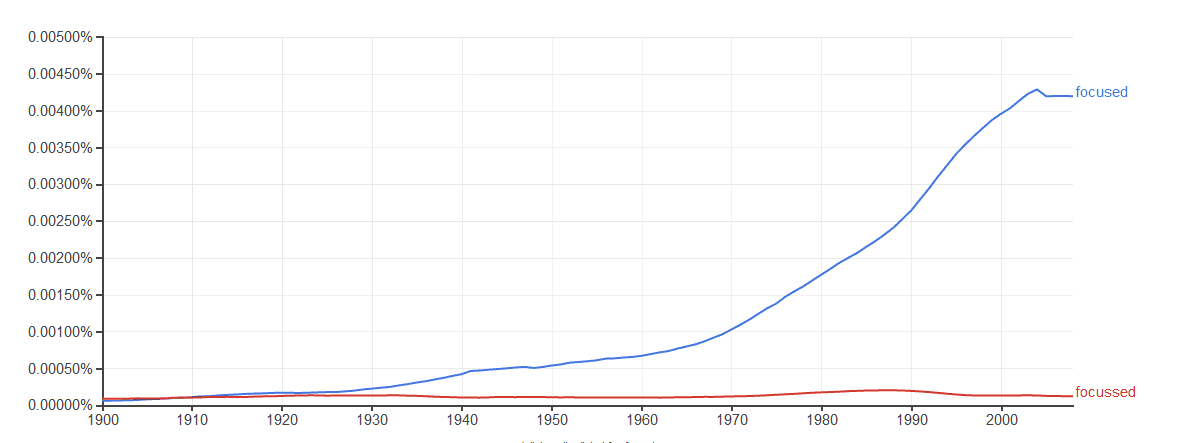- 3-minute read
- 7th May 2020
Spelling Tips: Focused or Focussed?
“Focused” and “focussed” are variant spellings of the same term, but the standard version in American English is “focused” (one “s”). Will you ever need to use “focussed” in your writing? It may depend on who you’re writing for! In this post, we explain everything you need to know.
What Does “Focused” Mean?
“Focused” has a couple of key meanings. The first is as the past tense of the verb “focus.” For instance, we could say:
We focused on correcting the spelling in the document.
The second is as an adjective meaning “clear” or “concentrated”:
The expertly focused image made the culprit easy to spot.
She had a focused approach to training.
As you can see, we have used the spelling “focused” for all the examples above. But is there ever a reason to use “focussed” instead? And why are there two spellings? Let’s take a look at where these variants came from.
Find this useful?
Subscribe to our newsletter and get writing tips from our editors straight to your inbox.
Subscribe to Beyond the Margins and get your monthly fix of editorial strategy, workflow tips, and real-world examples from content leaders.
Why Two Spellings?
The two spellings of this term are a result of the doubling up rule and English spelling reform crashing into one another.
The doubling up rule states that the final letter of some words is doubled when you add a vowel suffix. Usually, this only applies to a two-syllable word when the final syllable is stressed. “Focus” doesn’t fit this pattern, but the final “s” was often doubled anyway (e.g., focussed, focussing).
However, the trend to simplify English spelling, especially in American English, has sometimes involved dropping this extra letter, like in “focused.” And this spelling has been more popular worldwide for decades.

Most dictionaries still recognise the spelling “focussed,” but it is much rarer in modern writing. In fact, it is so rare in American English that “focussed” may be seen as an error, so it is almost always better to use “focused.”
Summary: Focused or Focussed?
“Focused” and “focussed” are two spellings of the same word:
- Focused (one “s”) is the standard spelling of this term in modern English.
- Focussed (with a double “s”) is a rare variant spelling, although it is more common in British and Australian English than it is in American English.
In short, then, it is usually best to stick with “focused.” And if you want to be extra sure your work is error free, you can have it proofread. Why not upload a sample document for free and find out how we can help?
Prefer Writing Tips in Video?





